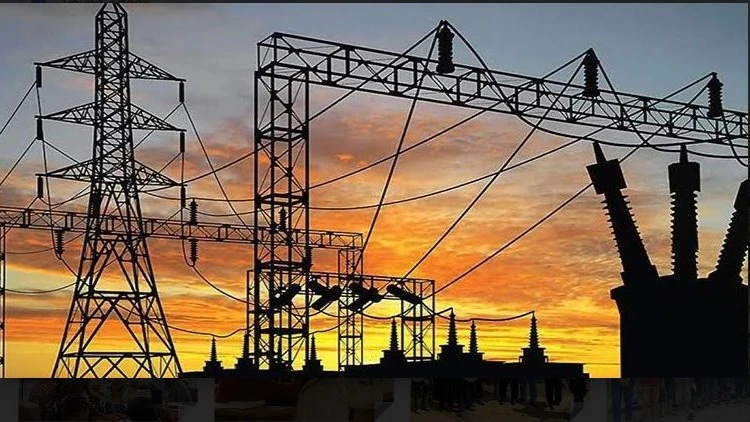Strengthening regional energy connections: Ethiopia electricity exports to Tanzania set to begin next month

ETHIOPIA is poised to make a game-changing move in the energy sector with its upcoming electricity exports to Tanzania, slated to kick off next month. In a statement that has captured widespread attention, Engineer Ashebir Balcha, CEO of Ethiopian Electric Power, announced on August 23, 2024, that the first power transmission will commence by mid-September.
This development comes after meticulous preparations and is set to mark a significant leap in Ethiopia’s energy strategy. The initial export will not only boost Ethiopia’s revenue but also strengthen its role as a regional energy powerhouse, underscoring its commitment to expanding energy access across East Africa.
This significant step is part of Ethiopia’s broader strategy to amplify its electricity export revenue, which has already surpassed $140 million this year alone, reflecting a 6% increase compared to the previous year. The country currently supplies power to Djibouti, Sudan, and Kenya, and Tanzania will soon be added to this growing list.
The impending electricity exports to Tanzania highlight Ethiopia’s expanding regional energy network. "We are committed to extending our power grid beyond our borders," Balcha stated. "Our goal is to enhance regional cooperation and contribute to a more integrated energy market in East Africa."
Ethiopia’s move to export electricity aligns with its ongoing efforts to strengthen regional energy connections. The country plans to extend its power grid to South Sudan and Somaliland, utilising the existing power line to Kenya as a conduit for these future connections. This expansion highlights Ethiopia’s strategic focus on leveraging its renewable energy resources to bolster regional energy integration.
In addition to the upcoming Tanzanian exports, Ethiopia is also advancing the Kenya-Tanzania power line project, expected to be completed by November 2025. This infrastructure development is poised to enhance the regional energy network, promoting greater energy interconnectivity across East Africa. The Kenya-Tanzania line is anticipated to play a crucial role in facilitating more robust energy exchanges in the region.
Ethiopia’s energy export strategy is supported by its abundant renewable energy resources, particularly from hydropower projects like the Grand Ethiopian Renaissance Dam (GERD). Once fully operational, the GERD is projected to significantly boost Ethiopia’s electricity generation capacity. "The GERD is a game-changer for our energy sector," remarked Dr. Donald Mmari, an energy expert. "It will enable Ethiopia to meet both domestic and regional energy demands more effectively."
The launch of electricity exports to Tanzania represents a pivotal development in Ethiopia’s role within the East African energy market. As the country continues to expand its energy infrastructure and export capabilities, these advancements are expected to have far-reaching implications for regional cooperation and economic growth. "This export deal is not just about selling electricity; it’s about strengthening ties and fostering economic growth throughout the region," Balcha emphasized.
The situation contrasts sharply with Tanzania’s previous energy ambitions. Despite extensive planning and substantial investments in projects like the Kinyerezi power generation initiative and gas extraction in Mtwara, Tanzania has faced persistent energy shortages.
Prof Sospeter Muhongo, the former Minister of Energy and Minerals, had envisioned that by 2014, Tanzania would have surplus electricity to export. "Our plans were robust," Muhongo explained. "We aimed to ensure that by 2014, we would have had enough excess electricity to export and support our economic goals."
However, the reality has been less favorable, underlining the challenges Tanzania faces in achieving energy self-sufficiency. The country’s reliance on imports from Ethiopia underscores the ongoing struggles in realizing its energy aspirations. Despite Tanzania's efforts, including the development of additional energy sources such as wind, solar, and coal, the goal of energy independence remains elusive.
The disparity between Ethiopia’s achievements and Tanzania’s struggles raises a critical question: why is Tanzania importing electricity despite its ambitious plans? Ethiopia and Kenya have demonstrated significant progress in electricity generation and export, setting a high bar for the region. As Tanzania seeks to enhance its energy infrastructure, the example set by Ethiopia's successful expansion into regional electricity markets offers valuable insights.
For instance, Kenya has successfully integrated its energy infrastructure with neighboring countries, establishing itself as a regional energy hub. "Kenya's approach to regional energy integration has been exemplary," noted Professor Samwel Wangwe, an expert in regional energy systems. "Their success underlines the potential benefits of a well-coordinated energy strategy."
Correspondingly, Ethiopia's success in expanding its energy exports serves as a powerful example of how leveraging renewable resources and investing in infrastructure can drive regional economic growth. The upcoming electricity exports to Tanzania mark a significant milestone in Ethiopia’s efforts to enhance its role in the East African energy market.
As Ethiopia continues to advance its energy infrastructure and export capabilities, it sets a powerful precedent for regional cooperation and economic integration. The country’s achievements in the energy sector not only highlight its strategic vision but also emphasize the importance of continued investment and collaboration in achieving regional energy goals.
Ethiopia’s move to export electricity to Tanzania marks a significant shift in regional energy dynamics, showcasing Ethiopia’s dedication to harnessing renewable energy and enhancing regional cooperation. This initiative sets a precedent for transformative energy investments in the region.
Charles Makakala, a management consultant-technologist from Tanzania, highlighted the disparity in energy generation between nations, noting that South Korea, despite its small size, produces twice the amount of electricity generated by 48 Sub-Saharan African nations combined. He criticized Tanzanian politicians for their rhetoric and lack of substantive action, comparing the country's energy challenges unfavorably to South Korea's efficient energy sector.
In July, Tanesco reported a record profit of Sh109.45 billion for the 2021/22 financial year, attributed to the government’s decision to convert Tanesco’s Sh2.4 trillion debt into equity. Former Tanesco’s Managing Director, Maharage Chande, described this achievement as a landmark since the utility's establishment in 1964.
The power system Master Plan for Tanesco outlines a future generation mix of hydro (28 percent), natural gas (33 percent), coal (26 percent), wind (4 percent), solar (4 percent), and geothermal (5 percent) by 2044. However, the current emphasis on intermittent sources likes hydro, wind, and solar over more reliable coal and natural gas raises concerns for Tanzanians.
The past 30 years have seen significant benefits from gas-fired power plants, which have bolstered reliability and affordability. The introduction of gas was a major blessing for Tanzania's energy sector, as evidenced by the cost savings of $16 billion achieved by Tanesco through the Songas project between 2004 and 2020. In contrast, the IPTL project, initially intended as an emergency diesel power solution, resulted in significant additional costs due to its underperformance.
Ethiopia’s plan to export electricity to Tanzania highlights a significant shift in regional energy dynamics, as Tanzania aims to enhance its electricity supply and diversify its sources. Yet, with unused gas capacity at Ubungo and Kinyerezi, and further potential from existing pipelines, focusing on imported electricity may overlook a crucial element of Tanzania’s energy strategy.
Natural gas has been crucial in enhancing the reliability and affordability of Tanzania’s power sector. Ignoring this resource while depending on external electricity could jeopardize the sector's progress and efficiency.
To ensure energy security and bolster regional influence, Tanzania should focus on optimizing its gas resources. Successful countries like Norway and Qatar have demonstrated how effective management of natural gas can lead to energy independence and economic growth. By learning from these examples, Tanzania can achieve similar successes in its energy sector.
Top Headlines
© 2025 IPPMEDIA.COM. ALL RIGHTS RESERVED

























